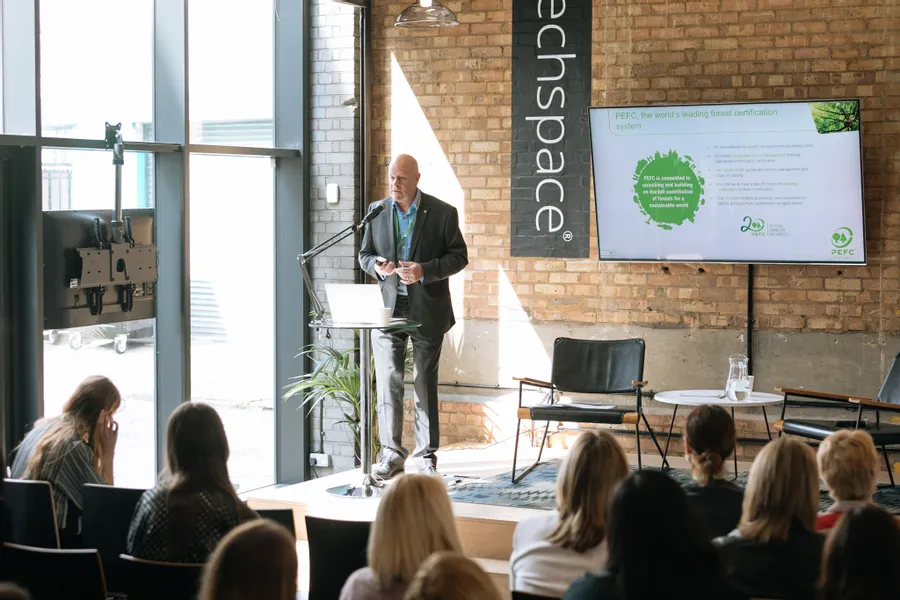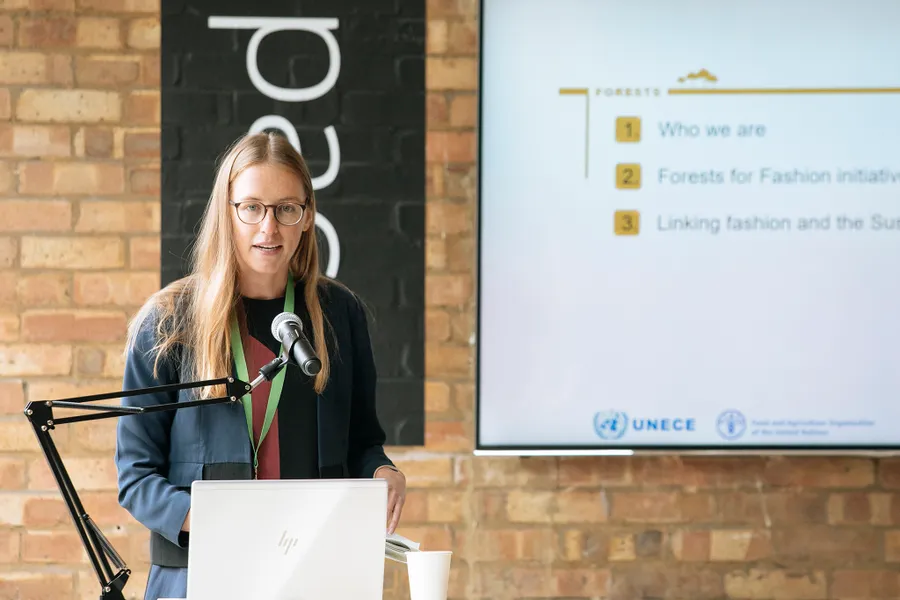From Forest to Wardrobe
From Forest to Wardrobe
Fashion event
Pioneering industry specialists and PEFC representatives gathered in London to discuss innovative forest solutions to make the textile industry more sustainable.

Hosted by PEFC UK, ‘From Forest to Wardrobe’ looked at how fibres from sustainably managed forests can unlock opportunities for sustainability in fashion. Thanks to the new wave of technologies, we can now use wood fibres to produce recyclable, renewable and biodegradable textiles.
Liesl Truscott from Textile Exchange presented sustainability lessons from the organic cotton transformation journey, while Susanna Koelbin from NAIA outlined the route from responsibly sourced wood to sustainable cellulosic yarn.
Alun Watkins, CEO of PEFC UK, and Deepa Hingorani, Textile Sustainability Consultant of PEFC International, spoke about the role of sustainably managed forests for sustainable fashion.

Leonie Lisa Meier from UNECE/FAOhighlighted the importance of a sustainable fashion industry for the UN Sustainable Development Goals (SDGs).
“10% of global greenhouse gas emissions are emitted by the fashion industry,” she said.
“The industry needs to change its consumption habits to reduce water use, radically improve recycling and phase out substances of concern that contribute to harmful micro-fibre release into the eco-system.”
The event was moderated by Tamsin Lejeune, founder of the Ethical Fashion Forum (EFF) and CEO of Common Objective (CO). CO is an intelligent business network for the fashion industry with more than 15,000 members, matching members with the connections and resources they need to work in the most sustainable way.
‘From Forest to Wardrobe’ attracted more than 60 participants, among them representatives from leading fashion brands including Alexander McQueen, Burberry and Ted Baker.
Helping the fashion industry to become sustainable
Leading brands and fashion consortiums are increasingly concerned about the environmental and social impacts associated with the textile industry.
Almost 65% of global fabric consumption consists of synthetic fibres derived from fossil fuels, whilst the majority of the remainder is made up of cotton – a water and pesticide-intensive crop.
Today, almost 7% of textiles are produced from wood fibres, and their share of the global fibre basket is expected to grow by 30% by 2023.
Fashion brands and retailers have an important role to play in creating sustainable supply chains and driving demand for responsibly sourced products.
This creates opportunities for them to develop more sustainable business models that can help reduce their environmental and social impacts.
By specifying PEFC-certified materials within their procurement policies, brand owners can be assured the fibres they purchase come from forests managed in line with the strictest international requirements. PEFC certification helps to build trust in forest products, creating additional demand and ultimately increasing the value of forests.